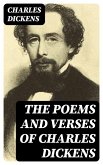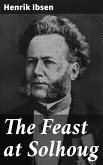Nicholas Rowe's "Jane Shore" is a poignant tragedy that delves into themes of love, betrayal, and redemption set against the turbulent backdrop of 15th-century England. The play is crafted in a classic Restoration style, utilizing elevated language and rich poetic devices to convey the emotional depth of its characters. Rowe's nuanced portrayal of Jane Shore, a historical figure and mistress to King Edward IV, highlights the human condition's complexities and the societal constraints imposed on women during this era. By intertwining fact with dramatic imagination, Rowe situates the narrative within the broader context of English history, illuminating the intersection of personal choice and political intrigue. Nicholas Rowe (1674-1718), a pioneering figure in the Restoration drama movement, was also captivated by the historical narratives of his time. His education at Westminster School and subsequent experiences in the legal profession instilled in him a deep appreciation for both literature and history. Driven by a desire to revitalize the stage, Rowe drew from classical traditions while also seeking to reflect contemporary societal issues, evident in his profound characterization and moral inquiries. For readers and theater enthusiasts alike, "Jane Shore" is an essential exploration of early modern English drama, skillfully merging historical detail with empathetic narrative. Rowe's artistry not only invites audiences into the intimate struggles of its protagonist but also encourages critical reflection on the societal mores of both the past and present. This play remains a significant work for anyone interested in the evolution of theatrical storytelling.
Dieser Download kann aus rechtlichen Gründen nur mit Rechnungsadresse in A, B, BG, CY, CZ, D, DK, EW, E, FIN, F, GR, H, IRL, I, LT, L, LR, M, NL, PL, P, R, S, SLO, SK ausgeliefert werden.









